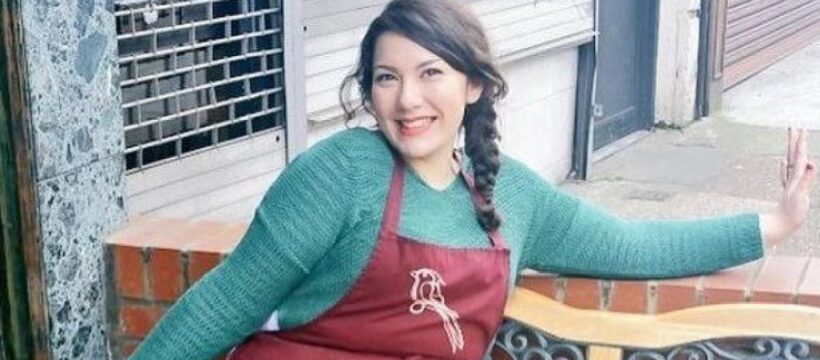For five months in 2020 I was endlessly, unsuccessfully, job hunting.
Granted, my timing could not have been worse. I closed my small, award-winning business in January of that year in search of such ‘perks’ as maternity pay and weekends, and I was confident that my entrepreneurship and experience would provide a smooth transition into a new vocation.
Unfortunately no sooner was I free to roam, we became a nation in lockdown. Rising unemployment figures made each job more competitive meaning I couldn’t be particular.
I just needed to work, so applied for anything I could, including a funeral arranger, despite the fact funerals are petrifying to me.
I distributed around 30 CVs per week, made ceaseless phone calls to The National Careers Service and sent application form after application form to no avail.
I wasn’t offered one interview, but watched on longingly as friends lined them up from the comfort of their sofas. I wondered: what have they got that I haven’t? They didn’t work harder, weren’t cleverer and none of them have had it handed to them on a plate.
Then a depressing but totally plausible idea hit me: what if it’s my name?
My foreign-sounding – where-the-hell-is-that-from, I bet she can’t speak English, is that a man or woman – name.
Hiring a Sevjan, which is my Turkish birth name, is pretty risky – she could bring all sorts of issues. Is she allowed to work in this country? Will she be religious, or unsociable?
The frustration of not even getting a single rejection email consumed me, so I decided to try something drastic.
The time had come for my socially acceptable, white-sounding middle name, Melissa, to take centre stage and work her caucasian magic.
I edited my CV, changing my name but nothing else, and – bingo.
After five months of silence, the offers finally began to roll in. I sent out another batch of 30-odd CVs as Melissa. Almost instantly my phone started to ring – recruiters, HR departments and even one company I’d sent my original CV to suddenly wanted to arrange a Zoom interview.
I scheduled four interviews in one day; one company phoned to set it up the same day I applied. It was almost too easy.
Was this a coincidence? I wanted in my heart to believe that it was but experience told me differently.
I’ve always been exposed by my name. I look white so I blend in quite comfortably up until the point someone asks what I’m called. On answering, a predictable, ethnically-charged barrage of other questions are deployed. Where are you from? Where are your parents from? What does your name mean?
Occasionally people mistake my name for something simpler and in my relief, I let them. There’s a good few folks out there who think I am called Sarah-Jane.
There was only one explanation for what happened with my job hunt: outdated, accepted, inherent, racism. On paper, I cannot hide my truth, much like non-white people cannot hide theirs in person.
I have had hateful things said to me about my culture and race many times, and it never stops feeling unfair, shocking, to receive abuse from people that don’t know me.
The grotesque culture of name discrimination is not new. It’s not due to coronavirus or lack of jobs, it’s a deeply ingrained, widely accepted, learnt behavior. Another kick in the teeth for people who cannot conform to the whitewashed world we live in. Even I have privilege that comes with being fair-skinned.
In 2019 in the UK, 77 per cent of white people were in employment, compared to 65 per cent from all other ethnic groups combined. It’s not surprising though, if non-white people are not even being given a chance to get out of the starting blocks.
Despite how far things may have come, my experiment does not bode well for our collective future. I had to make my name white, hide my culture and change myself to fit in – and only then did I become employable.
I posted online about my experience and received overwhelming support from droves of white friends who had previously been oblivious to this shade of discrimination. Others reached out in solidarity, full of empathy because they too had been compelled to use this tactic to gain employment.
One black friend confessed to using a totally different white name during the interview process, only revealing her true identity upon signing legal paperwork after getting the job.
In an attempt to promote diversity some companies now accept applications without a name, age, or gender. This is a potential solution, but why should it be? Why is diversity in the workplace even up for debate? Imagine the experiences that a melting pot of cultures at work could yield.
This is not about blame – people often aren’t aware of inequality that they haven’t experienced. But no matter what the ‘new normal’ means, our eyes must remain open with our new-fangled vision.
We’ve all witnessed young black people protesting just to matter, we’ve seen footage of men and women killed in the street by police.
We’ve all started to talk about race, and all know enough to know better. Let us say our names proudly and allow everyone the opportunity to succeed, no matter what languages we speak.
Melissa has since had a number of interviews. She will be breaking through the closed doors and minds for me until I can hopefully find an employer that can’t pronounce my name, but hires me anyway.
Do you have a story you’d like to share? Get in touch by emailing [email protected].
Share your views in the comments below.
Source: Read Full Article

